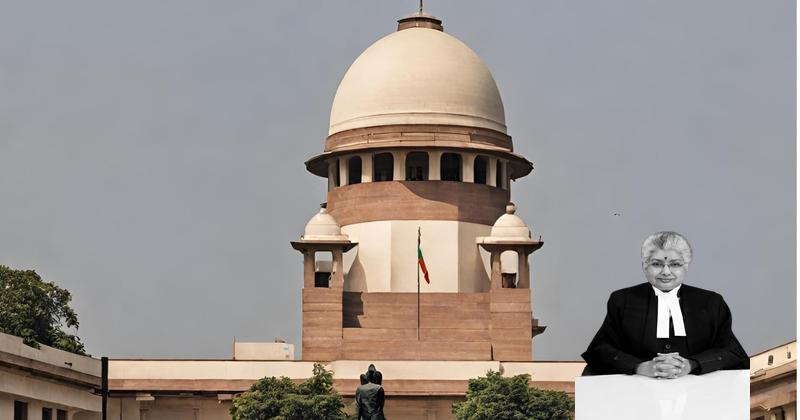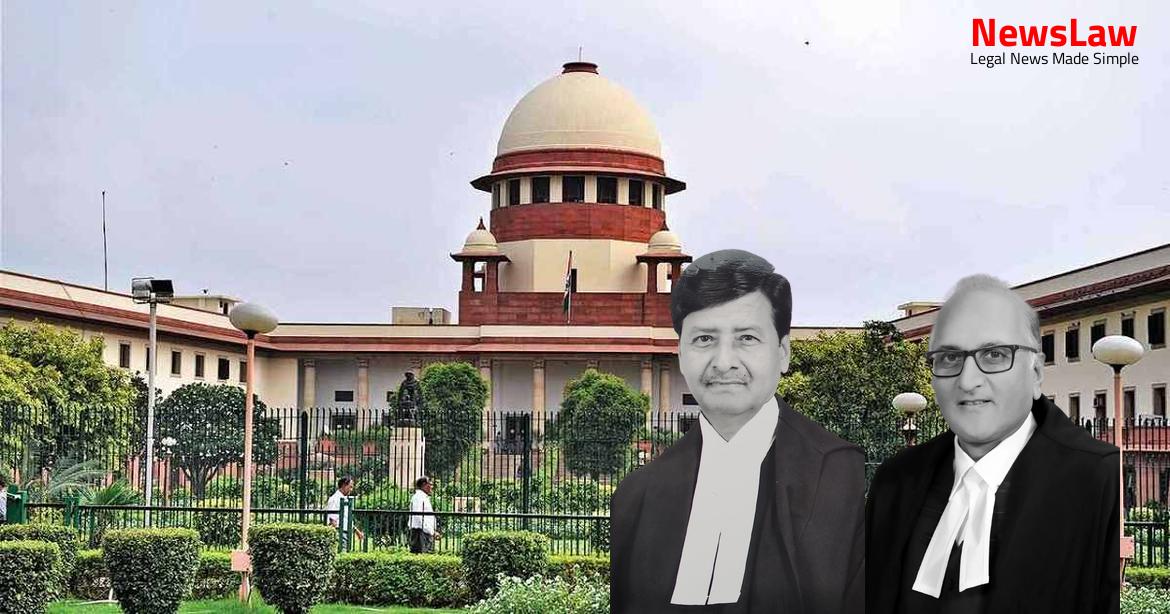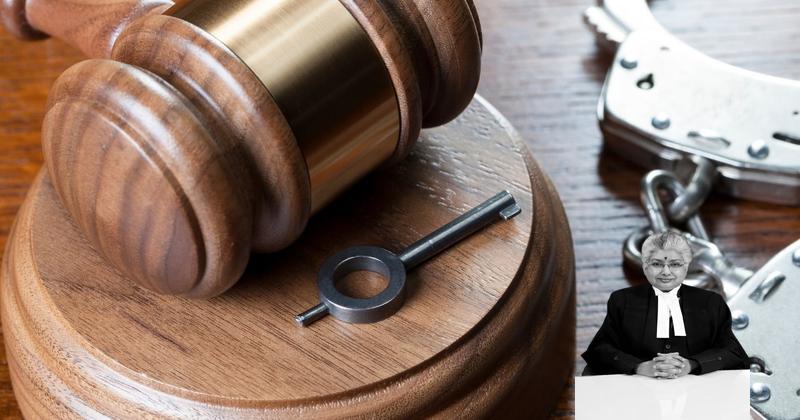RESPONDENT(S) WITH CIVIL APPEAL No.4529/2022 CIVIL APPEAL No.4525/2022 CIVIL APPEAL No.4581/2022
J U D G M E N T
NAGARATHNA J. It may hold its first meeting within one month to take stock of the situation and to prepare action plan in the light of recommendations of Joint Committees quoted earlier in para 15 above in respect of individual plants as well as road map generally. The contribution, alongwith compensation which may be collected may be credited to a separate environment restoration account for restoration of environment and relief to the victims of damage to the environment in such manner as may be found necessary by the Mission.
The Mission may also monitor scientific management and utilization of fly ash by power projects outside Singrauli and Sonebhadra, in coordination with Chief Secretaries of concerned States and adopting safety measures for ash dykes, installing devices to control air pollution, (including FGDs, OCEMS) in a time bound manner and restoration of environment and public health.
of Thermal Power Stations 191 Capacity (MW) 2,13,030 MW Coal Consumed 672.130 Million Tonnes Fly Ash Generation 222.789 Million Tonnes Fly Ash Utilization 205.098 Million Tonnes Percentage Utilization 92.06% Legacy Flyash 1670.602 Million Tonnes The Committee of Secretaries, in coordination with PPs and statutory regulators, may draw a road map for utilization and disposal of entire legacy fly ash for Sonebhadra and Singrauli areas as well as for all the Power Plants located in clusters or standalone with tagging the sources to utilize fly ash on voluntary and compulsion mode for which required mechanism be laid down. The PPs may take remedial measures as per recommendations of the Committee and as per law, failing with coercive measures for continuing or future violations be taken by concerned authorities. If the salaries to persons appointed as compensation to the victims are below minimum wages, the PP may ensure compliance of law on the subject which may be also looked into by the concerned Labour Departments of the State of UP and MP. CPCB may also circulate the same by email to all TPPs or other concerned to facilitate compliance. Being aggrieved by the directions issued by the NGT and the manner in which the original petition has been disposed of, the appellants have filed these appeals. He further submitted that Section 19(1) of the National Green Tribunal Act, 2010 (hereinafter referred to as the “Act” for the sake of convenience) categorically states that the Tribunal, though not bound by the procedure laid down by the Code of Civil Procedure, 1908, shall nevertheless be guided by the principles of natural 6 justice. Secondly, he submitted that the fact that in such a short span of time the matters were considered and disposed of by the NGT, in the absence of there being objections filed by the appellants herein nor having heard the appellants herein, would also imply that there has been no consideration by the NGT of the pros and cons vis-a-vis the recommendations made by the expert Committee and as to whether the directions issued were appropriate to the case of each of the appellant(s) herein or not.
Also Read: https://newslaw.in/?p=655
In conclusion, learned Solicitor General submitted that the impugned order may be set aside and the matter may be remanded to the NGT for re-consideration of the entire case of the first 7 respondent herein in compliance with the principles of natural justice, that is, firstly by giving an opportunity to the appellants herein to file their objections, if any, to the recommendations of the Committee constituted by the NGT and secondly, by giving a further opportunity of hearing to the appellants herein. We find substance in the submissions made by learned Solicitor General, learned senior counsel and learned counsel for the respective parties. Points for determination are remedial action against pollution due to failure to scientifically manage and utilise the flyash, accountability for damage due to breach of Rihand reservoir and due to breach of ash pond, resulting in deaths and injuries and damage to the crops and environment. We have considered the data furnished in the reports furnished in pursuance of earlier orders of this Tribunal dated 04.11.2020 in OA No 117/2014, 14.07.2020 in OA No 164/2018 and 29.6.2020 in OA
No 148/2020, including the recommended remedial action. NCL Bina Project, Bina, Sonbhadra Recommendations of the Committee xxx 3. M/s NCL Kakri Project, Sonbhadra Recommendations of the Committee xxx 5. NCL Khadia Project Sonbhadra Recommendations of the Committee xxx Aluminum Smelter: M/s HINDALCO Industries Ltd., Renukoot, Sonbhadra Recommendations of the Committee xxx M/s Grasim Industries Limited Chemical Division, Renukoot, Sonbhadra Recommendations of the Committee xxx M/s Birla Carbon India Pvt.
Section 19(1) of the NGT Act, 2010 reads as under: “19.(1)
Also Read: https://newslaw.in/?p=384
The Tribunal shall not be bound by the procedure laid down by the Code of Civil Procedure, 1908 (5 of 1908) but shall be guided by the principles of natural justice.” At this stage, we may also observe that the recommendations made by an expert Committee are not binding on the NGT, they are only by way of assistance to enable the NGT to arrive at a correct decision in the matter. The adjudicatory function of the NGT cannot be assigned to committees, even expert committees. It is first important to differentiate expert committees which are set by the courts/tribunals from those set up by the Government in exercise of executive powers or under a particular statute. The role of an expert committee appointed by an adjudicatory forum is only to assist it in the exercise of adjudicatory functions by providing them better data and factual clarity, which is also open to challenge by all concerned parties.
Union of India9, a two- Judge Bench of this Court noted that the NGT is an expert adjudicatory body on the environment. An expert committee may be able to assist the NGT, for instance, by carrying out a fact- finding exercise, but the adjudication has to be by the NGT. The very nature of an adjudicatory function would carry with it the requirement that principles of natural justice are complied with, particularly when there is an adversarial system of hearing of the cases before the Tribunal or for that matter before the Courts in India. The data on which an authority 14 is acting must be apprised to the party against whom the data is to be used as such a party would then have an opportunity not only to refute it but also supplement, explain or give a different perspective to the facts upon which the authority relies. Thus, factual information which comes to the knowledge of NGT on the basis of the report of the Committee constituted by it, if to be relied upon by the NGT, then, the same must be disclosed to the parties for their response and a reasonable opportunity must be afforded to present their observations or comments on such a report to the Tribunal.
Case Title: SINGRAULI SUPER THERMAL POWER STATION Vs. ASHWANI KUMAR DUBEY (2023 INSC 618)
Case Number: C.A. No.-003856 / 2022



